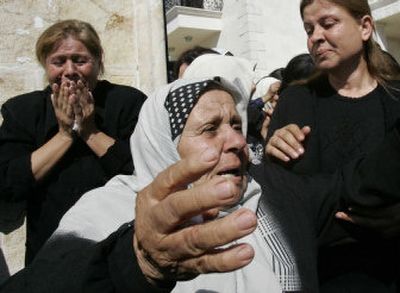Kenaan laid to rest, but not speculation

DAMASCUS, Syria – As speculation swirled about the manner of his death, Interior Minister Ghazi Kenaan was buried Thursday in a low-key ceremony for a once-formidable figure in Syria’s security apparatus.
The government insisted Thursday that Kenaan, who served as Syria’s proconsul in Lebanon for 20 years, shot himself the day before. His death rattled a country already under intense international pressure over its role in Lebanon and perceived inability to control its borders with Iraq.
Interior Ministry officials told a news conference in Damascus on Thursday that Kenaan shot himself in the mouth with a .38 Smith & Wesson revolver while in his office. That account reiterated the report of suicide issued by the official news agency hours after the interior minister’s death.
Kenaan was still alive when he was taken to a hospital, chief public prosecutor Mohammed Louji said, but died shortly thereafter.
Kenaan had faced public allegations of corruption and had been questioned last month by a U.N. prosecutor investigating the assassination last winter of a former Lebanese prime minister.
On Thursday, Foreign Minister Farouk Shareh told reporters outside the hospital that the media had hounded his colleague to death.
“When the media uses words, it’s just like using bullets,” said a sullen, shaken-looking Shareh. He alleged that leaks of “unjust and vague information” contributed to “the killing.” Then he quickly corrected himself, saying: “I mean the suicide.”
The death comes ahead of the planned release on Oct. 25 of the U.N. investigative report into the Feb. 14 assassination of Rafik Hariri. The slaying of the former Lebanese leader triggered a backlash that forced Syrian troops to abandon Lebanon in April, ending their 29-year domination.
As chief of Syrian military intelligence in Beirut from 1982 to 2002, Kenaan symbolized the power of Damascus over its neighbor.
Suspicion persisted Thursday that Kenaan was slain, perhaps to set him up as the main fall guy for the assassination.